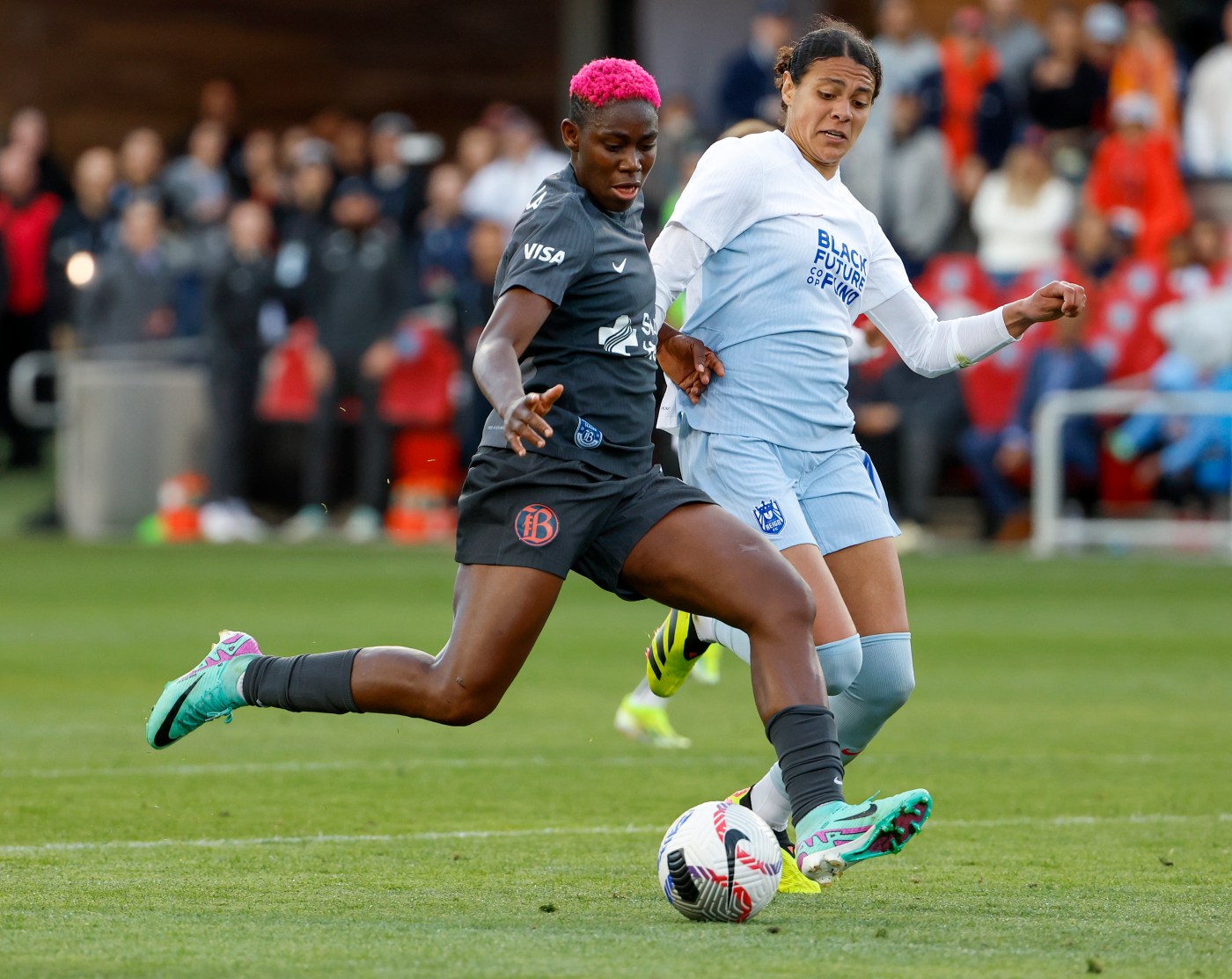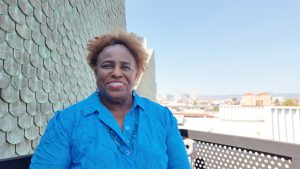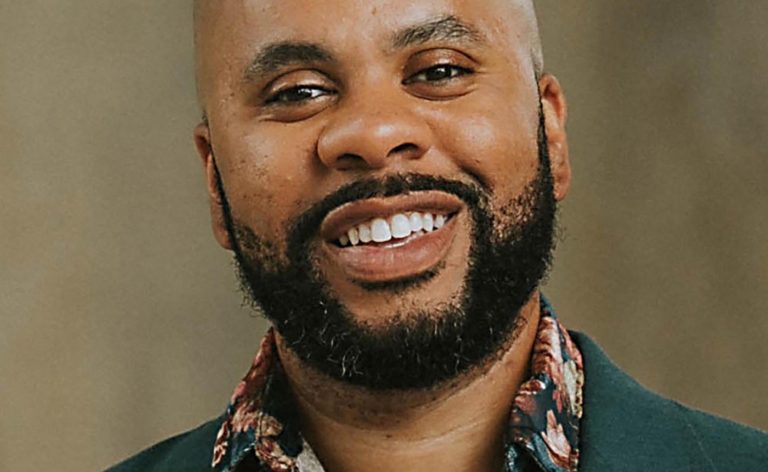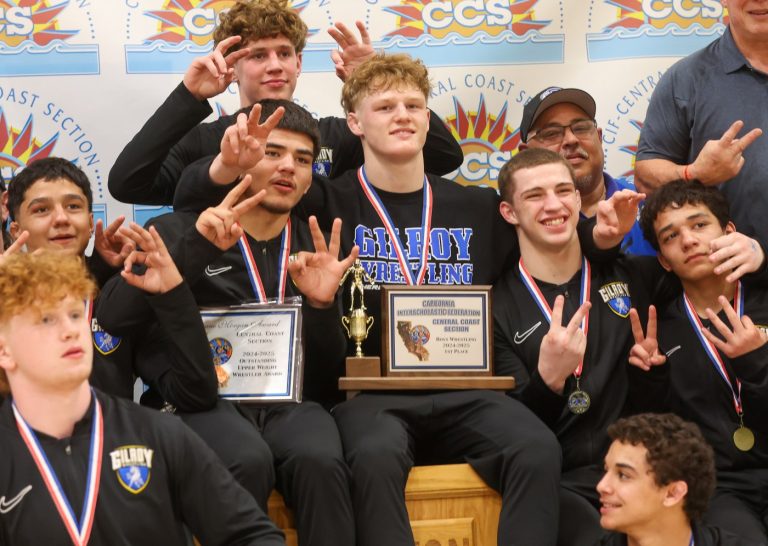SAN JOSE — It was a sunny day, just before Bay FC’s final game before the Olympic break, and Asisat Oshoala was trying to make a point.
“I don’t know if you understand what I’m saying,” said the pink-haired soccer star. “It was always for fun. Nothing professional.”
As a kid growing up in Nigeria, she never dreamed she’d make it this far.
She never knew professional soccer existed in her country.
But here she is, now 29, one of the most accomplished goal-scorers in European soccer, taking a break from leading a Bay FC team in its inaugural season in the National Women’s Soccer League to fly to France, where she’ll represent a proud Nigerian team making its first Olympic appearance since Beijing in 2008.
“It’s always difficult to qualify for the Olympics,” she said. “We’ve tried for 16 years.”
It was a grueling grind to get there, with Nigeria and Zambia earning two coveted spots among the 52 African nations eligible to compete.
Oshoala, who has 37 goals in 60 career games for her country, will need to be in top form if Nigeria is to make it through the “Group of Death” with World Cup champions Spain, Brazil and Japan.
“I’m going to be honest, I just want to just go have fun there, enjoy the experience, see what it feels like and see why it’s special,” she said. “I want to know why it’s different.”
Her curiosity got her this far.
That’s what her journey has been all about.
Growing up in Lagos, Nigeria’s largest city with more than 15 million people – about 20 times the population of San Francisco — Oshoala was not allowed to play soccer. It was seen as a waste of time for women, she said. Her dad wanted her to focus only on her schooling.
But every Sunday morning, she told her parents she was off to buy bread and instead ran out to play soccer barefoot in the streets, running around on concrete and trying to score goals through a pair of car tires.
“I enjoyed it,” she said. “Sometimes I’m like, ‘Just take me back.’ Sunday, no shoes, no flip flops, nothing, just my legs kicking the ball around on a village floor. We didn’t have grass. I didn’t play on grass. Barefoot on the concrete. It’s the best feeling.”
If her dad found out she was playing — and sometimes, he did — she’d be in big trouble.
“It was a really tough period for me,” she said.
To go against her family’s wishes, did that require bravery and self-confidence, knowing that the risk was worth it if she was going to one day become a professional player?
“No!” she said. “I was just doing it for fun. Like if you have a free period in school you go out and do whatever you want to do. The girls go and play their little games and I would go with the guys to play soccer or do something stupid.”
Nobody supported her, “except for my grandma,” she said. “Whatever I wanted to do, she always supported me. She’d say, ‘If you want to go play, go play; I’ll tell your mom I asked you to go get me something.’”
Nigeria’s Asisat Oshoala, left, battle for the ball with Ireland’s Amber Barrett during the Women’s World Cup Group B soccer match between Ireland and Nigeria in Brisbane, Australia, Monday, July 31, 2023. (AP Photo/Tertius Pickard)
Then, a stroke of luck.
One Sunday morning when she snuck off to play soccer with the guys on some concrete not far from the Lagos National Stadium, a man showed up and said there were women playing on the stadium grass nearby.
“Women playing football?” Oshoala said. “Are you serious? That was a surprise to me. I never believed there was a proper pro team, a group of girls playing. I only saw myself and maybe two or three girls who played football. But then seeing a full team playing on a standard pitch, I’m like, ‘Woo, must be nice.’”
The man brought her over to the stadium to watch the girls play. It was FC Robo, a team in Nigeria’s women’s professional league. The man invited her to train with them, but she laughed.
“You’re going to get me killed, man,” she recalled telling him. “My dad can’t even know I was here. I told him I was going for a run. He didn’t know I was going to go play football. What are you going to tell him, you saw me playing football? You’re going to get me killed.”
But the man was convincing, said he’d handle it smoothly, and Oshoala gave in.
“Good luck,” she told him.
Soon the man visited Oshoala’s house. He spoke with her mom, then her dad. Her dad walked out of the room and Oshoala couldn’t believe what he told her.
“You can go with him,” her dad said. “He seems like a nice guy. You can train with them.”
Just like that, she was a professional soccer player.
At 14, she quickly found success against women much older than her.
Soon, one of the better teams in the league, Rivers Angels, wanted Oshoala to play for them. It would be better exposure for her to play for the national team if she continued to be successful, their coach explained.
She looked up in disbelief.
“These guys don’t even know that me playing here is just by luck,” she said. “Now you’re asking me to come to another state? I said, ‘Are you serious?’’
She moved to Port Harcourt, a 10-hour drive from her hometown, to play for Rivers Angels.
Soon after that, she was playing for the Nigerian U20 national team.
A few years later, Liverpool signed her. Then she went to Arsenal, where she helped the Gunners win the FA Cup. Then she moved to China, where she helped Dalian Quanjian win the league title while winning the Golden Boot for most goals in the league. And finally, Barcelona, where she’d score more than 100 goals and win 14 trophies in five years, earning her finalist honors for the Ballon d’Or for best women’s player in the world.
Wolfsburg’s Kathrin Julia Hendrich, chases down Barcelona’s Asisat Oshoala during the Women’s Champions League semifinal, first leg, soccer match between Barcelona and Wolfsburg at Camp Nou stadium in Barcelona, Spain, Friday, April 22, 2022. (AP Photo/Joan Monfort)
“When I look back at how I started and the opportunity I had, I remember I had friends who were also good at playing soccer when I was growing up but they couldn’t go further,” she said. “They couldn’t go further because of either family or opportunity. There were no competitions for them to play in. So I wanted to help.”
While playing in Europe, she started a foundation that helped provide soccer equipment and opportunities for girls in Lagos. She’d ask her teammates for extra cleats or uniforms, then ship them all home to disperse.
She had two goals: give girls an opportunity to compete and showcase what they’re capable of, something Oshoala never had until a stroke of luck at age 14; and keep them involved in school.
Oshoala dropped out of school to pursue soccer full-time. She regrets it.
“That’s what I wanted to tell the girls: You can still play football and go to school at the same time,” she said. “You don’t have to stop going to school if you want to play football. That’s a fear of a lot of parents. And that’s why they limit their kids from playing sports.”
Oshoala’s foundation has impacted over 5,000 girls in Nigeria since it began less than a decade ago.
In 2022, she launched the Asisat Oshoala Academy, where teams of U-15 and U-17 girls, 30 in total, train both professionally and in the classroom.
“At the academy now you won’t find a kid who isn’t going to school,” Oshoala said. “The ones who can’t go, they have other things we teach them. Some are learning how to sew, learning how to be mechanics. Just to make them understand you don’t have to just do one thing.”
In her offseasons, Oshoala goes to the academy to train with the girls. She competes hard against them, she said, and sometimes she loses.
Related Articles
Bay FC can’t keep up with San Diego Wave in Summer Cup opener
Bay FC set for first-ever NWSL x Liga MX Femenil Summer Cup
How Brandi Chastain remembers World Cup-winning PK and jersey-less celebration 25 years later
Bay FC struggles early, falls to Washington ahead of lengthy Olympic break
Bay FC wraps up season’s first half with 3-0 loss to Washington Spirit
Her efforts in Lagos have helped unearth two players, Rasheedat Ajibade, 24, and Chidinma Okeke, 23, who have since become members of the Nigerian Olympic national team.
In San Jose, Oshoala is still looking to find her footing with Bay FC. The expansion side is on the outside of playoff contention entering the Olympic break.
Oshoala, a Ballon d’Or finalist just two years ago, has scored only three times in 15 games.
“It’s been a roller coaster,” she said. “I knew it wasn’t going to be easy. But we’re improving.”
Oshoala’s dad has since changed his mind about soccer.
“He’s my biggest supporter right now,” she said.
Unfortunately, he won’t make it to Paris for the Olympics — “My parents don’t like to travel,” she said — but he’ll be watching on TV.
“Even if I am playing at midnight,” she said. “He’s always awake to watch.”
Bay FC’s Asisat Oshoala (8) tries to get a shot off against Utah Royals FC’s Ana Tejada (17) in the first half at PayPal Park in San Jose, Calif., on Sunday, June 16, 2024. (Nhat V. Meyer/Bay Area News Group)












